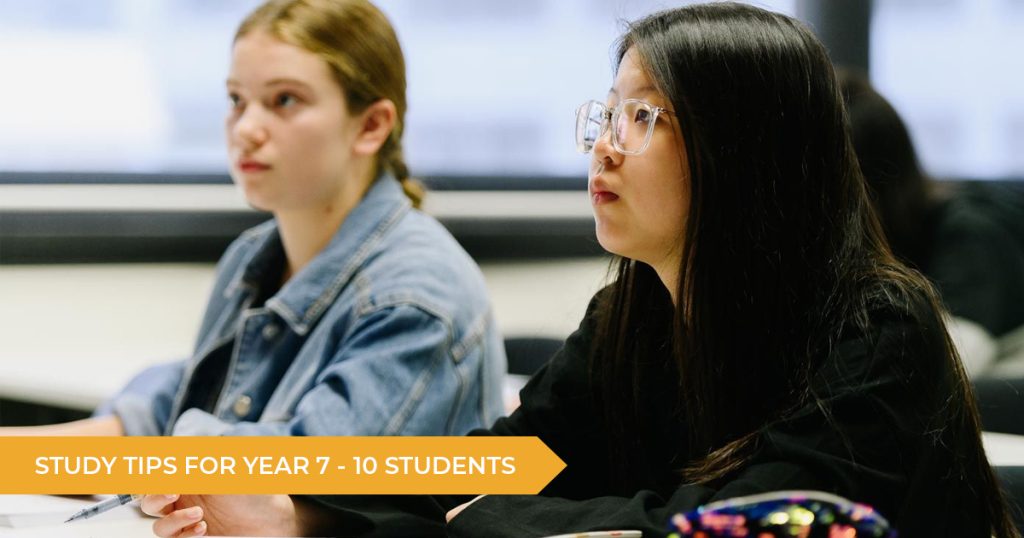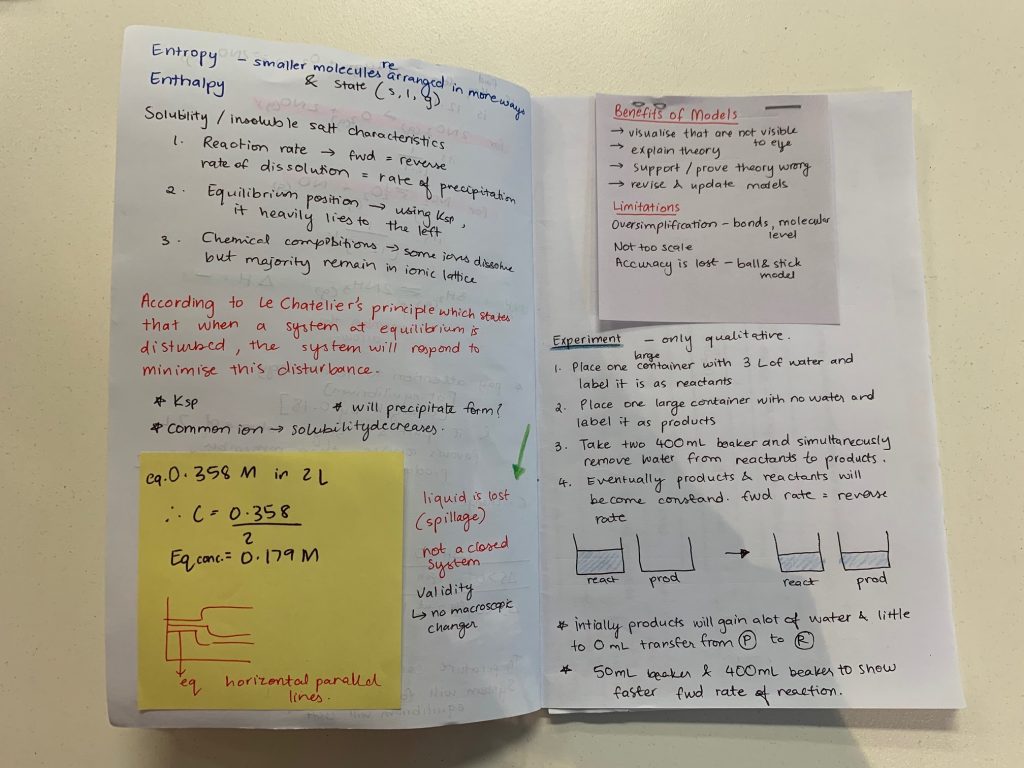It’s never too early to get into good habits – especially when it comes to school.
In order to succeed in Year 11, 12 and in the HSC, it’s best to get into a great routine now while you have the time and capacity.
Here are our best study tips for students in Year 7-10 looking to set a good foundation for the senior years of high school:
Write regular summaries
A great place to start is by summarising your existing notes when you get home from school. This way, the content is fresh in your mind and you can easily refer back to the notes when it comes to exam season. Another benefit about summarising your notes is that you can just refer to these shorter summaries, instead of going through your textbooks and worksheets from school.
Ask for feedback from your teachers
Don’t be afraid to ask for extra feedback from your teachers following a weekly test or exam. If you’re confused about a particular concept or don’t understand how to work something out, asking the teacher is the best way familiarise yourself with the work.
Create a study bible
After you’ve written your summaries for each subject, you can then create a study bible – just like our Year 12 2020 Epping student Sakhi did for the HSC.
RELATED: Sakhi’s Chemistry Study Bible: 97.50 ATAR Study Tips
These notes combined with your school notes will help to create a handheld booklet with all the essentials that you can use to prepare for exams and assignments:
Create your own study group
Study sessions with friends are a great way remain motivated and keep on top of your study routine.
You can also benefit from teaching your friends about different concepts – and in turn this will help you learn and memorise the content better.
Ask for extra tasks if you need practice
If you feel like you need some extra help in one particular lesson, ask your teacher if they can provide you with more practice questions you can complete out of class. Not only will this help you master the topic, but you can also save these extra resources when it comes time to studying for a quiz or exam.
Start reading a variety of texts in your free time
For students in Year 7 and 8 (Stage 4), reading should be an enjoyable experience built upon personal interests.
This is the best time to develop a regular reading habit, and start off with texts which are fun and engaging. Some books we recommend are:
– The Adventures of Sherlock Holmes (Arthur Conan Doyle)
– The Graveyard Book (Neil Gaiman)
– In The Sea There Are Crocodiles (Fabio Geda)
– His Dark Materials (Phillip Pullman)
RELATED: Which Books Will Develop My English Skills?
The more you dedicate to reading in your free time, the more you will see your creative writing and English skills improve.
Find out your learning style
If there is one tip we can recommend to all students, it would be to identify your learning style – the best way you can retain content.
Not only does this make it so much easier to for you to actually remember content in the long-run, but it’ll make more sense to you. Especially in those high stress situations where forgetting crucial details might cost you a mark or two.
There are a number of learning styles to consider:
Visual: Written notes, colour coding, graphs, illustrations, posters.
Logical: Understand the mechanics of something you’re trying to study. Logical learners needs to understand why this certain formula is put into place, and then repeat this pattern by doing practice questions.
Social: Social learners retain information best being around around students – teaching each other topics and content.
Physical: Rather than listening or watching a teacher lecture in the classroom, students depend on the method of touch for learning and revising.
Audio: Audio learners retain information best when listening to something such as a podcast or audio book.
Verbal: Verbal learners will typically enjoy writing and speaking in order to accelerate learning at school and beyond. This works similarly to social learning, where the content needs to be repeated or taught at length.
Solitary: Solitary learners love nothing more than one thing – learning alone and at their own pace.
Excel in your studies with the help of Talent 100. Learn more about our Year 7 – 10 course structure, 1-1 tutorials, online classes, extra resources and how we can take your marks to the next level with face-to-face and online class options. Click here for more information.






